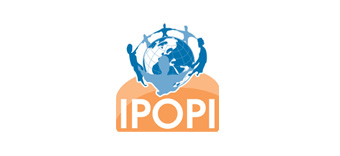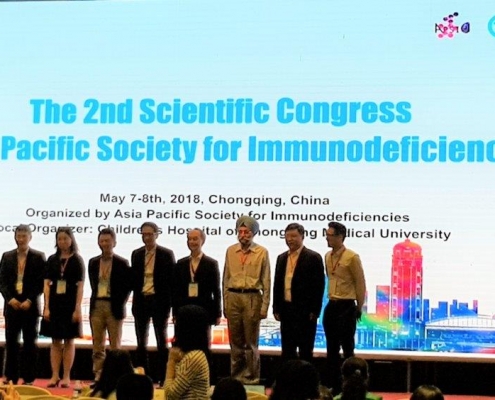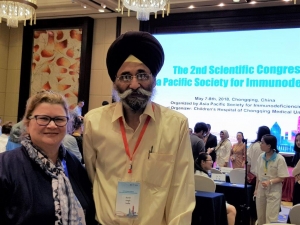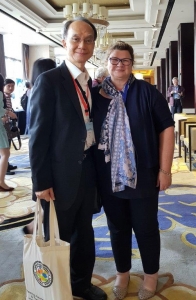July 04, 2018
PID Congress in China
The 2nd Scientific Congress of the Asia Pacific Society for Immunodeficiencies (APSID) took place on May 7-8 2018, in Chongqing, China, under the motto ”Primary Immunodeficiency Diseases and Beyond” and IPOPI Board Member Mrs Christine Jeffery was pleased to take part in the meeting.
China has made great progress in the diagnosis and treatment of primary immunodeficiencies (PIDs), transplantation, research, and training of 300 paediatricians in immunology, making it an interesting venue for this event.
The meeting shed light on the diversity of diagnosis, care and treatment in Asian nations with better-resourced regions genome sequencing and newborn screening and less resourced regions unable to do basic immunology testing.
The meeting featured many interesting case presentations, poster presentations and lectures that included topics such as primary immunodeficiencies (PIDs), autoimmune disease, Hematopoietic Stem Cell Transplantation (HSCT), gene therapy, exome sequencing, research, Severe Combined Immune Deficiency newborn screening (SCID NBS), vaccinations, infections and respiratory disease.
Prof Andrew Cant stated that since 1990 the PID field has expanded exponentially, with improved new molecular technologies and improved and more successful treatments including subcutaneous immunoglobulin (Scig), HSCT, Gene therapy, biologics and specific inhibitors.
Prof Kohsuke Imai discussed Japan’s clinical database (PIDJ) and referral registry pathway, which has enabled more patients from rural areas to be diagnosed and treated.
Prof Hans Ochs reminded the audience about the importance of collaboration much needed to obtaining funding, sharing data across borders and mentoring physicians.
Identified challenges for Asia
- Building up PID centres
- Advancing in science, diagnosis, care and treatment
- Equality for all patients
The way forward suggested by the APSID panel
- Continue to train and educate beyond Schools and Congresses
- Document PID caseloads with Registries
- Promote the standard of Ig therapy and HSCT
- Promote access to tests and treatments
- Collaborate in research
- Engage Haematologists, respiratory physicians and other specialists involved with PID patients



